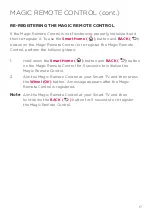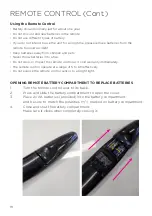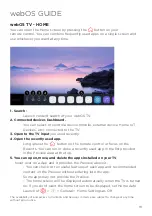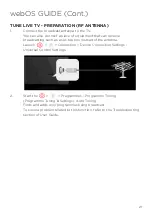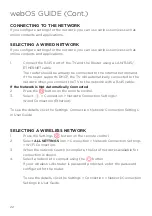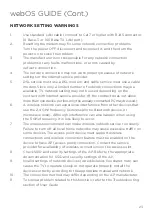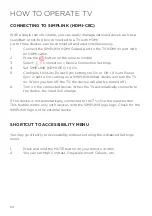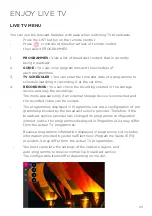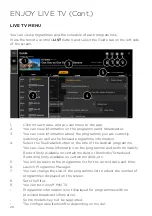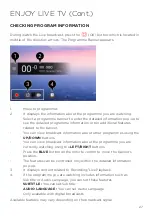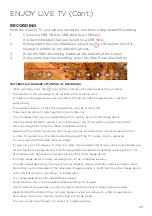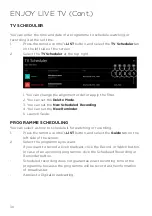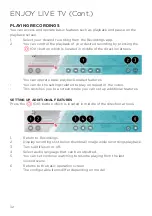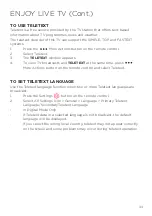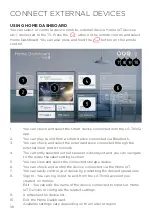
23
NETWORK SETTING WARNINGS
1.
Use standard LAN cable (connect to Cat7 or higher with RJ45 connector,
10 Base-T, or 100 Base TX LAN port).
2.
Resetting the modem may fix some network connection problems.
Turn the power OFF, disconnect and reconnect it, and then turn the
power on to solve the problem.
3.
The manufacturer is not responsible for any network connection
problems or any faults, malfunctions, or errors caused by
network connection.
4.
The network connection may not work properly because of network
settings or the Internet service provider.
5.
DSL service must use a DSL modem; and cable service must use a cable
modem. Since only a limited number of network connections may be
available, TV network setting may not be used depending on the
contract with Internet service provider. (If the contract does not allow
more than one device per line, only the already-connected PC may be used.)
6.
A wireless network can experience interference from other devices that
use the 2.4 GHz frequency (wireless phone, Bluetooth device, or
microwave oven). Although interference can also happen when using
the 5 GHz frequency, it is less likely to occur.
7.
The wireless environment can make wireless network service run slowly.
Failure to turn off all local home networks may cause excessive traffic on
some devices. The access point device must support wireless
connections and wireless connection feature must be enabled on the
device to have AP (access point) connection. Contact the service
provider for availability of wireless connections on the access point.
8.
Check SSID and security settings of the AP. Refer to the appropriate
documentation for SSID and security settings of the AP.
9.
Invalid settings of network devices (wired/wireless line sharer, hub) can
cause the TV to operate slowly or not operate properly. Install the
devices correctly according to the appropriate manual and network.
10.
The connection method may differ depending on the AP manufacturer.
11.
To solve a problem related to this function, refer to the Troubleshooting
section of User Guide
webOS GUIDE (Cont.)









